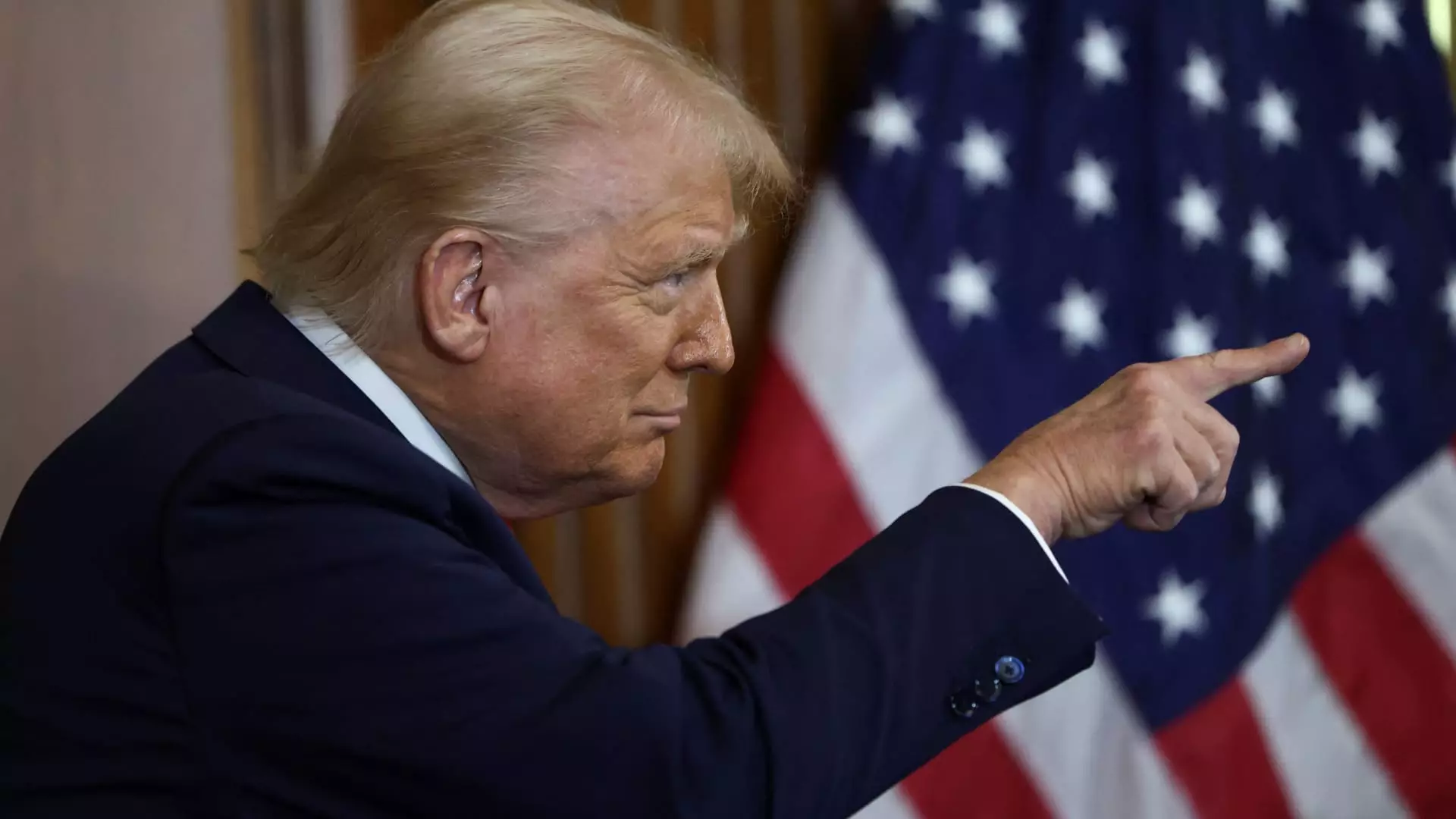In the annals of U.S. political history, the sight of a Republican president advocating for tax hikes aimed at the wealthy garners immediate skepticism. Yet here we are, with Donald Trump hinting at a potential increase in the top income tax rate for individuals earning over $2.5 million. This unexpected pivot raises eyebrows, especially among a party usually wedded to tax cuts as a mantra. While Trump frames this proposal as a necessary measure to safeguard social safety nets like Medicaid, it signals a discord within GOP ranks that could be telling of a deeper ideological struggle about the party’s future direction.
A Call to Revert to Pre-2017 Tax Rates
When the Tax Cuts and Jobs Act (TCJA) was enacted in 2017, the top federal income tax rate was lowered from 39.6% to 37%. This move was lauded by fiscal conservatives as a victory for economic growth, premised on the idea that wealth would trickle down to ordinary Americans. However, Trump’s suggestion to revert the tax rate to 39.6% for the ultra-wealthy raises crucial questions. Would a higher tax rate really serve to empower the middle and lower classes, or is this simply political theater designed to score points ahead of an upcoming election cycle? The historical perspective complicates the narrative: the tax landscape fluctuates significantly over decades, and the actual burden should be assessed beyond just the percentage.
An Ideological Clash
In Trump’s recent phone call with House Speaker Mike Johnson, he pressed for a tax increase aimed at the wealthy, yet admitted that his own party might recoil at the proposal. This juxtaposition reveals an intraparty divide that epitomizes current Republican identity crises. Are they still the champions of unfettered capitalism, or are they willing to consider a more interventionist approach in an era where income inequality has reached alarming heights?
As lawmakers face “a pretty simple math issue,” as aptly put by Natasha Sarin, president of the Yale Budget Lab, the Republican Party’s strategy will require fine-tuning. Disagreement about funding and priorities could limit their ability to push through comprehensive reforms. The irony is rich: a party that has thrived on fiscal conservatism might be compelled to face realities that contradict their fundamental ideological stance.
Tax Loopholes: A Double-Edged Sword
Trump’s proposal also includes closing the carried interest loophole, a move that has long been championed by progressives as a means to prevent the richest among us from exploiting tax policies. This loophole allows investment fund managers to pay lower tax rates on income than regular wage-earning citizens. The closed loophole could act as a significant deterrent to tax evasion among the elite, but implementing such measures might further irk conservative lawmakers who believe that reducing taxes for wealthy individuals spurs economic growth.
This conflict calls into question the very roots of capitalist economics in the U.S. Should there be mechanisms to ensure those who shoulder the burden of taxation are not the ones who can afford to evade it? The long-standing rhetoric that minimizing tax burdens on the wealthy enhances overall economic performance is increasingly showing cracks, as evidence mounts that income disparity is growing rather than closing.
Political Capital vs. Fiscal Responsibility
As Trump re-emerges as a significant voice in Republican politics, his willingness to entertain a tax hike for the wealthy could either signify a shift in approach or a mere facade to gain support. This is particularly pertinent as Trump aims to maintain and bolster support from middle- and lower-income constituents who are feeling the brunt of economic tumult.
The dual challenge for GOP leaders rests in their ability to balance these competing pressures: the predisposition toward tax cuts ingrained in their political DNA while also addressing the clamors for economic justice from disillusioned voters. The forthcoming discussions over funding an expansive and costly spending package reveal whether the party can adapt to a more complex economic landscape than the one they once navigated solely by cutting taxes.
Whether Trump’s unexpected proposal to increase taxes on the high earners will be welcomed by any faction of the Republican Party remains to be seen. Still, it undoubtedly forces a reckoning with the powerful, and often controversial, question of who should adequately bear the weight of public expenditures in 21st-century America.

